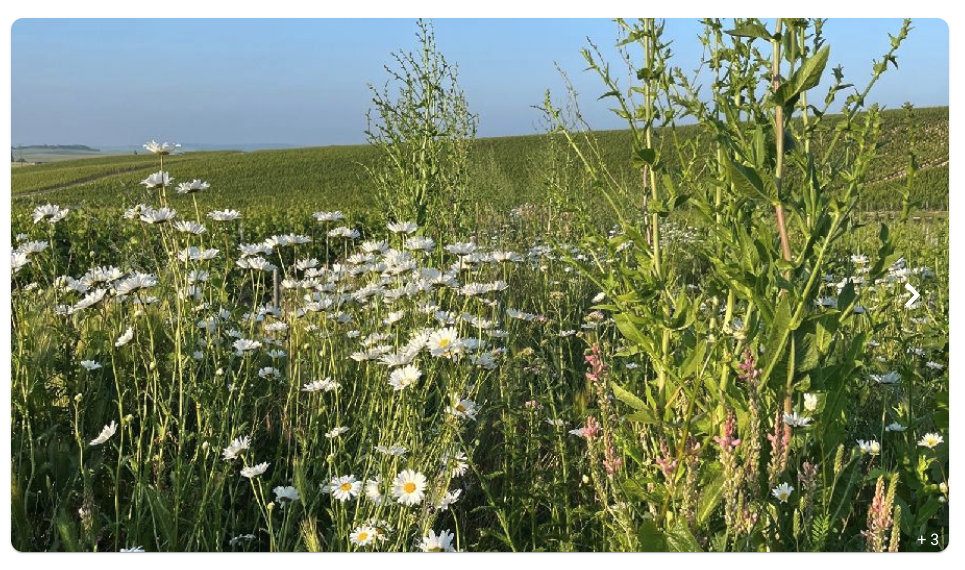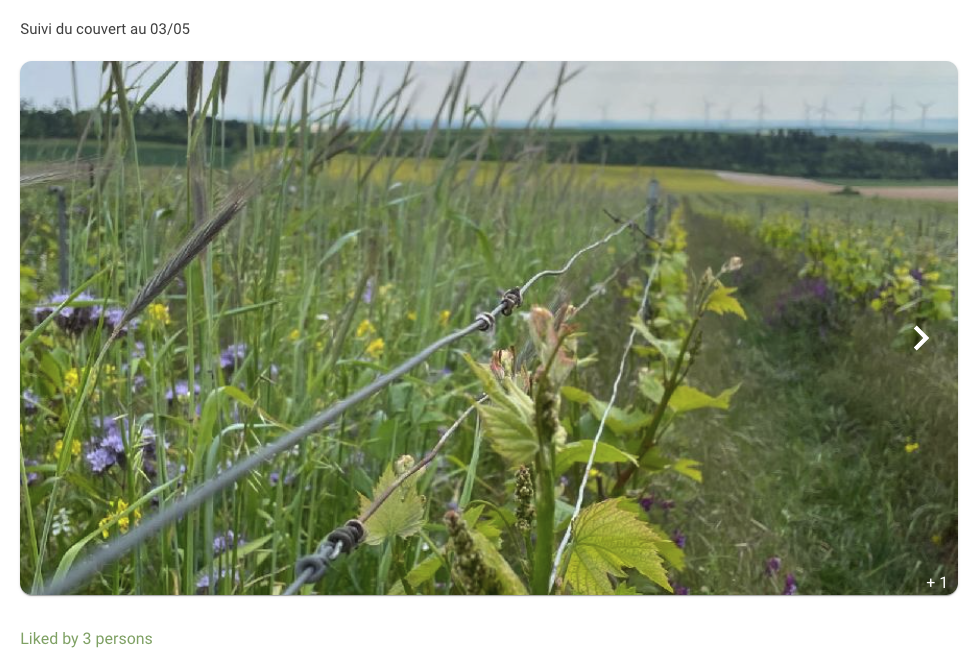Tailored social networks are offering farmers interested in agroecology a platform to connect, collaborate, and share knowledge. Unlike their mainstream counterparts, these thematic social networks cut through the noise of general interest topics and provide a dedicated space that caters to niche domains.
These platforms are particularly effective when facilitating connections across diverse actors within specific value chain sectors and when they act as a bridge for individuals who may not otherwise interact face-to-face. They are also especially relevant when all users are interested in community building and share a common objective, meaning that most interactions – exchange of experience, advice, mentorship, challenges, and solutions – result in deeper cooperation.
FARMING NETWORKS
The agroecology movement, which aims to achieve technical, social, and environmental sustainability in the food system, is a perfect landscape for these thematic social networks. The movement, which includes agroforestry and mixed farming practices, is gaining relevancy when it comes to building resilience to climate change, the increasing cost of inputs like fertilisers, petrol, and agrochemicals as well as market fluctuations and social concerns around the environmental impacts of farming.
Farmers worldwide are increasingly embracing agroecological approaches, seeking to safeguard their soil, enhance biodiversity, and fortify their resilience against climate-related challenges. Yet, the successful adoption of these practices hinges on the availability of crucial resources: research, expertise and knowledge sharing. Yet agroecological approaches are still far from being predominant among producers, manufacturers, retailers, consultancy companies, academia, practitioners, and policymakers. The agroecology community, therefore, relies on creating feedback between the different actors of the value chain.

A screengrab from the thematic social media site Landfiles. Photo: Baptiste Dekeyne
LANDFILES
One platform that is helping in this regard is the application Landfiles, which in its own words aims to “support and accelerate the development of new agroecological techniques.” Landfiles is a social network for farmers that allows its users to share information, observations, and knowledge about their land and operations, including research, studies, pictures, reports, and experiments. This content can be categorised in multiple different ways, including by geography, crop type, and farm type. All this information is available to users in tailored groups. The platform also encourages interaction between farmers and other interested individuals such as practitioners, consultants, and researchers with its own chat system. The app originated in France but has since expanded internationally.
One of the 450 existing groups on the app as of 2023 is the Comunidad de sistemas agroforestales y cultivos mixtos which is focused on agroforestry and mixed farming systems in the Iberian Peninsula. It has contributions in Spanish, Catalan, and Portuguese. The group’s name literally translates to “A community of agroforestry and mixed farming systems.” Established in April 2023, within the framework of the Transition and LIFE AgroForAdapt projects, this group reached 93 members by November 2023, when two additional projects, AGROMIX and DigitAF, joined the initiative.
It aims to serve as a meeting point for people interested in agroforestry and mixed farming systems, with special attention to farmers. The intention is that this group will facilitate interactions within the platform and beyond, including periodical web-based meetings to discuss specific issues between the group members, and other activities that the members find interesting to organise. This group is free and open for further members, projects, and entities to join.

A social media post from Landfiles shows a farm in France. Photo: Baptiste Dekeyne
A PLATFORM FOR CHANGE
The founder and CEO of Landfiles, Nicolas Minary, says its “contribution to the farming industry and the Comunidad de Sistemas Agroforestales y Cultivos Mixtos group lies in its ability to facilitate the implementation of detailed monitoring of farming practices. Within the group, Landfiles has enabled members to obtain valuable information on increasing the productivity, profitability, and sustainability of agroforestry systems and combined farming.”
He also notes that “by offering the opportunity to share and discuss farmers' experiences, as well as keeping up to date with relevant conferences and publications, Landfiles has fostered an active exchange within this community. This platform has also enriched the knowledge base on resilient farming systems by allowing members to document and exchange innovative practices, contributing to a collective move towards more efficient and sustainable farming methods.”
Jaime Coello, coordinator of LIFE AgroForAdapt from the Forest Science and Technology Centre Catalonia (CTFC) says that "the Spanish and Portuguese community of modern agroforestry is composed of scattered pioneers, most of whom have installed their systems without any technical or subsidy support. Tools like this one give them visibility and support and may make things easier for further adopters of these essential practices in the future."
Agroforestry advocates for the integration of trees and shrubs on agricultural land. In agroforestry systems, woody vegetation is strategically combined with crops or livestock to create mutually beneficial interactions. This results in a sustainable and harmonious agroecosystem that offers advantages such as increased productivity, biodiversity, improved soil health, and enhanced resilience to environmental changes.
Mixed farming involves the simultaneous cultivation of different crops and/or the raising of livestock on the same piece of land. It looks to diversify agricultural activities, optimise resource use, and enhance overall productivity.
TREEFILES
Another project working towards a thematic social network in the agroecology movement is AGROMIX, a collaborative EU-funded initiative bringing together researchers, farmers, and policymakers. The primary objective of the project is to navigate the transition towards resilient farming, efficient land use, and sustainable agricultural value chains across Europe. One of the main outcomes of the project is TreeFiles, an innovative tool available since December 2023 that has been developed together with Landfiles and will be shared throughout their network.
The central mission of TreeFiles is to empower farmers with valuable tree planting recommendations tailored to their specific climatic, soil, and management conditions. By doing so, it serves as a catalyst for the seamless implementation of agroforestry systems, contributing to the broader sustainability goals of the AGROMIX project.
Moreover, TreeFiles is not just an interactive tool, but it is also a platform that fosters enhanced interaction among its users, primarily farmers. Here, they can share their experiences, showcase their progress, and receive valuable suggestions for their agricultural trials from those in similar situations. This collaborative and interactive approach within the farming community aims to create a vibrant ecosystem of shared knowledge and collective improvement.
Again, an interesting aspect of this function lies in its free access, user-friendly interface approach, and practical focus, with the aim of making it an inclusive resource ensuring that farmers with diverse backgrounds and expertise levels can benefit from its features, and at the end serve as an example of the power of collaboration, technology, and a shared commitment to sustainable and resilient agriculture in Europe.
Andrew Dawson, agroforestry researcher at Wageningen University and for the TreeFiles app says: “When we began the AGROMIX project we spoke with many farmers, advisors and researchers about what digital tools could facilitate them in taking their next steps with agroforestry. Their two highest priorities were peer to peer exchange and tree information.”
He adds: “We are delighted with the collaboration with Landfiles as this has allowed us to work together on realising these two priorities. A platform where users can take agroforestry to the next level both nationally and internationally. It’s a fantastic initiative and we encourage others to get involved.”
FORWARD-THINKING
Modern challenges require modern solutions, and with growing calls for the agricultural industry to become more sustainable, thematic social networks can help provide momentum in the wider adoption of agroecological practices in farming. Not only do they pool knowledge exchange based on categories such as geography, farming system, and crop type, but they put the research initiative in the hands of farmers themselves.